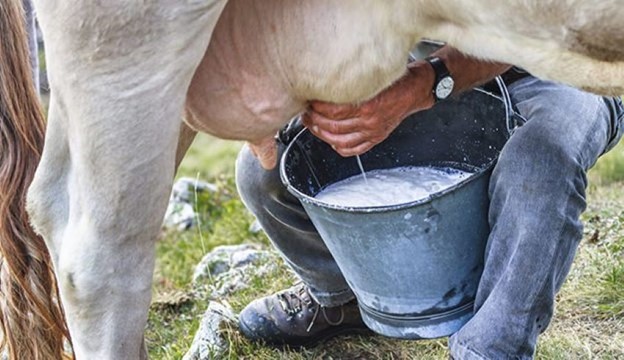
The Cuban State pays 15,000 pesos for an animal, processes it and sells it for 60,000 pesos, denounce the producers. (1 USD = 300 pesos)
HAVANA TIMES – Producers in Cuba’s agricultural sector insist that when it comes to producing and marketing food products such as milk and meat, Resolution 275/2024 of the Ministry of Agriculture is increasingly distant from the urgent needs of the country and even more so from the Cuban countryside.
“The fact that a state-owned company pays 38 pesos for a liter of milk does not take into account the costs of producing it or the prices of supplies,” comments farmer Armando Zamora on the regulation that obliges him to sell most of his products to state-owned companies at pre-established prices.
In this regard, he gives the following example: “A roll of wire (for fencing) costs between 30,000 and 36,000 Cuban pesos, about 100 or 120 U.S. dollars, depending on the exchange rate on the informal market, where the value of 1 dollar is around 300 pesos.
“The resolution says that the priority is the state, but the price they [state-owned companies] pay, compared to the 100 pesos paid on the informal market for the same liter, makes the pocket decide, not the conscience,” Zamora adds.
After insisting that he sees no prospects for 2025, the man linked to livestock farming for 19 years reflects: “Whoever sets those prices has never gotten up at two in the morning to milk a cow”.
Another long-standing unresolved problem is the difference between what the state-owned company pays the producer for beef and what the industry earns.
According to Zamora, the state companies “pay 15,000 pesos for an animal and when they process and sell it, they get 60,000 pesos. The one who spent years raising it, planting feed and taking care of it so that it would not be stolen is the one who earns the least… Without incentives, there will be no greater production”.
Amid a severe production crisis, dependence o


